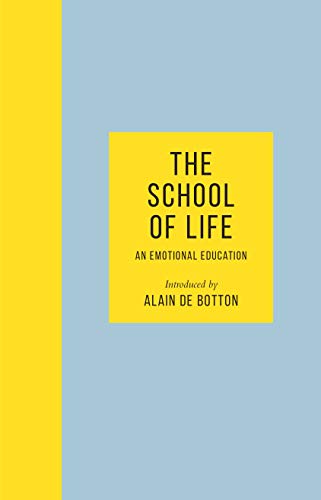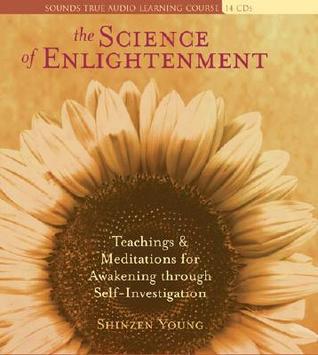
The School of Life: An Emotional Education
by Alain de Botton
30 popular highlights from this book
Key Insights & Memorable Quotes
Below are the most popular and impactful highlights and quotes from The School of Life: An Emotional Education:
“The emotionally intelligent person knows that love is a skill, not a feeling, and will require trust, vulnerability, generosity, humour, sexual understanding and selective resignation.”
“We will be reminded – once more – that love is a skill, not an emotion.”
“Irritability is anger that lacks self-knowledge.”
“Paradoxically, it is friendship that often offers us the real route to the pleasures that Romanticism associates with love. That this sounds surprising is only a reflection of how underdeveloped our day-to-day vision of friendship has become. We associate it with a casual acquaintance we see only once in a while to exchange inconsequential and shallow banter. But real friendship is something altogether more profound and worthy of exultation. It is an arena in which two people can get a sense of each other’s vulnerabilities, appreciate each other’s follies without recrimination, reassure each other as to their value and greet the sorrows and tragedies of existence with wit and warmth. Culturally and collectively, we have made a momentous mistake which has left us both lonelier and more disappointed than we ever needed to be. In a better world, our most serious goal would be not to locate one special lover with whom to replace all other humans but to put our intelligence and energy into identifying and nurturing a circle of true friends. At the end of an evening, we would learn to say to certain prospective companions, with an embarrassed smile as we invited them inside – knowing that this would come across as a properly painful rejection – ‘I’m so sorry, couldn’t we just be … lovers?”
“Being properly mature involves a frank, unfrightened relationship with one’s own darkness, complexity and ambition. It involves accepting that not everything that makes us happy will please others or be honoured as especially ‘nice’, but it can be important to explore and hold on to it nevertheless.”
“It’s deeply poignant that we should expend so much effort on trying to look strong before the world when, all the while, it’s really only ever the revelation of the somewhat embarrassing, sad, melancholy, and anxious bits of us that renders us endearing to others and transforms strangers into friends.”
“We will still be anxious when we finally have the house, the relationship and the right income.”
“People are bad, always, because they are in difficulty. They slander, gossip, denigrate, and growl because they are not in a good place. Though they may seem strong, though their attacks can place them in an apparently dominant role, their ill intentions are all the proof we require to know as a certainty that they are not well. Contented people have no need to hurt others.”
“Anxiety is not a sign of sickness, a weakness of the mind, or an error for which we should always seek a medical solution. It is mostly a hugely reasonable and sensitive response to the genuine strangeness, terror, uncertainty, and riskiness of existence.”
“One has to feel very small in order to belittle.”
“but people simply never need to harm others if they are not first tormented themselves.”
“Being a good listener is one of the most important and enchanting life skills anyone can have.”
“The wise have made their peace with the yawning gap between how they would ideally want to be and what they are actually like. They have come to terms with their tendencies to idiocy, ugliness, and error. They are not fundamentally ashamed of themselves because they have already shed so much of their pride.”
“Things happen on the scale of centuries. Today and tomorrow are essentially the same. Your existence is a small, temporary thing. You will die and it will be as if you had never been.”
“We should at all points spare ourselves the burden of loneliness. We are far from the only ones to be suffering. Everyone is more anxious than they are inclined to tell us. Even the tycoon and the couple in love are in pain. We have collectively failed to admit to ourselves how much anxiety is our default state.”
“There is no such thing as a hurt that is too small to matter when emotional closeness is at stake.”
“We need to become better friends to ourselves.”
“We need to be alone because life among other people unfolds too quickly.”
“The slowest among us can, in a few hours, pick up ideas that it took a few rare geniuses a lifetime to acquire.”
“A daily period of philosophical meditation does not so much dissolve problems as create an occasion during which the mind can order and understand itself. Fears, resentments, and hopes become easier to name; we grow less scared of the contents of our own minds—and less resentful, calmer, and clearer about our direction. We start, in faltering steps, to know ourselves slightly better.”
“Those who wounded us were not superior, impressive beings who knew our special weaknesses and justly targeted them. They were themselves highly frantic, damaged creatures trying their best to cope with the litany of private sorrows to which every life condemns us.”
“We too must mature, seek to reproduce, age, fall ill and die. We face a litany of other burdens too: we will never be fully understood by others; we will always be burdened by primordial anxiety; we will never fully know what it is like to be someone else; we will invariably fantasize about more than we can have; we will realize we cannot – in key ways – be who we would wish.”
“Soberingly, despite all our advances in technology and material resources, we are not much more advanced in the art of delivering emotionally healthy childhoods than generations before us.”
“What we call depression is in fact sadness and anger that have for too long not been paid the attention they deserve.”
“Communication Can we patiently and reasonably put our disappointments into words that, more or less, enable others to see our point? Or do we internalize pain, act it out symbolically or discharge it with counterproductive rage? When other people upset us, do we feel we have the right to communicate or must we slam doors and fall silent? When the desired response isn’t forthcoming, do we ask others to guess what we have been too angrily panicked to spell out? Or can we have a plausible second go and take seriously the thought that others are not merely wilfully misunderstanding us? Do we have the inner resources to teach rather than insist?”
“ideas, however noble, tend to require a little help from beauty.”
“The theory helps to restore a kind of justice that we may not ourselves directly be able to administer. The explanation of the origins of nastiness changes how we assess our opponent. No longer are they necessarily strong and impervious. We have not been able to punish them, but the universe has in a sense, and the clearest evidence for the sentence lies in the unhappiness that is powering their attacks. They have not got away with injuring us; their punishment lies in the pain they must be enduring in order to have such an urgent need to lash out. We, who have no wish to hurt, are in fact the stronger party; we, who have no wish to diminish others, are truly powerful. We can move from”
“We aren't overwhelmed by anger whenever we are frustrated; only when we first believed ourselves entitled to a particular satisfaction and then did not receive it.”
“There can wisely be no “solutions,” no self-help, of a kind that removes problems altogether. What we can aim for, at best, is consolation—a word tellingly lacking in glamour. To believe in consolation means giving up on cures; it means accepting that life is a hospice rather than a hospital, but one we’d like to render as comfortable, as interesting, and as kind as possible.”
“We are so impressed by honesty, we have forgotten the virtues of politeness, this word defined not as a cynical withholding of important information for the sake of harm, but as a dedication to not rubbing someone else up against the true, hurtful aspects of our nature.It is ultimately no great sign of kindness to insist on showing someone our entire selves at all times. A dedication to maintaining boundaries and editing our pronouncements belongs to love as much as a capacity to show ourselves as we really are.And if one suspects (and one should, rather regularly, if the relationship is a good one) that one’s partner might be lying too (about what they are thinking about, about how they judge one’s work, about where they were last night …), it is perhaps best not to take up arms and lay into them like a sharp, relentless inquisitor, however intensely one yearns to do just that. It may be kinder, wiser and perhaps more in the true spirit of love to pretend one simply didn’t notice.”
Find Another Book
More Books You Might Like

The Science Magpie: Fascinating facts, stories, poems, diagrams and jokes plucked from science
by Simon Flynn

The Science of Accelerated Learning: Advanced Strategies for Quicker Comprehension, Greater Retention, and Systematic Expertise
by Peter Hollins

The Science of Enlightenment: Teachings and Meditations for Awakening Through Self-Investigation
by Shinzen Young